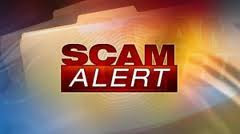Toll Road Scams Are on the Rise: What to Know and How Google Messages Is Fighting Back
As cashless toll systems become more prevalent, a new wave of fraud has emerged: toll road scams. These scams typically involve fraudulent text messages claiming the recipient owes unpaid toll fees. This form of smishing (SMS phishing) is spreading rapidly, exploiting the convenience of digital transactions and the trust users place in text messages.
What Is a Toll Road Scam?
A toll road scam is a type of smishing attack where cybercriminals send fake messages impersonating toll agencies. These texts often include a link prompting the user to "pay now" to avoid fines or late fees. Once clicked, victims may be directed to a phishing site or prompted to share personal and financial information.
These scams aren't limited to toll payments. The FBI has issued warnings about smishing attacks impersonating agencies and companies that collect parking tickets, credit card payments, bank alerts, and phone bills. Some scams even masquerade as anti-scam alerts, adding another layer of deception.
A Global Scam That Follows the Sun
Toll road scams are part of a global fraud operation. Scammers "follow the sun," launching waves of attacks throughout the day across different time zones:
-
Morning: Europe
-
Midday: U.S. East Coast
-
Evening: U.S. West Coast
In some cases, scam messages are laughably inaccurate. For instance, users have reported receiving toll fee warnings in states that don't even have toll roads, indicating a mass, untargeted fraud approach.
The Scope of the Problem: Smishing Statistics
The rise of smishing attacks is alarming:
-
Over 10,000 domains have been registered for smishing scams targeting toll services and package deliveries, according to the New York Post.
-
The FBI's Internet Crime Complaint Center (IC3) received over 2,000 reports of toll-related smishing scams in the past year (People.com).
-
Cities like Dallas, Atlanta, and Los Angeles have seen a fourfold increase in smishing scams since January (New York Post).
-
Only 36% of Americans are aware of what smishing is (Bank of America), making many susceptible to these attacks.
-
In April 2022, hackers sent an average of 2.6 billion smishing messages per week (Bank of America).
How Google Messages Is Protecting Users
Recognizing the growing threat of toll road and billing fee scams, Google Messages has implemented new security features to detect and warn users about suspicious messages in real time. Using advanced machine learning and threat intelligence, the app now flags:
-
Fraudulent toll payment links
-
Fake billing notifications
-
Unusual message patterns from unknown senders
These enhancements are part of Google's broader initiative to protect Android users from evolving text-based scams and phishing attacks.
What Are Cell Phone Carriers Doing About Smishing?
Cell phone carriers have taken steps to combat smishing:
-
Reporting Mechanisms: Major carriers like Verizon, AT&T, and T-Mobile allow users to report spam texts by forwarding them to 7726 (SPAM).
-
Spam Filtering Tools: Tools like Verizon's Call Filter help users identify and block potential spam messages.
-
User Education: Carriers provide guides to help users recognize and avoid smishing attacks.
Despite these measures, challenges remain:
-
Detection Limitations: Smishing messages evolve quickly, making them difficult to block in real time.
-
User Awareness: Many users are unaware of reporting options or the importance of avoiding suspicious texts.
-
Technological Constraints: SMS infrastructure lacks advanced spam-detection capabilities, limiting carriers’ effectiveness.
How to Spot a Fake Text Message
Experts recommend looking for these red flags:
-
Urgent language or threats of fines or suspension
-
Misspellings or strange links
-
Messages from unknown numbers or odd area codes
-
Requests for personal or financial information
Some scam messages may place the dollar sign after the amount (e.g., "10$" instead of "$10"), a common mistake that signals a fake origin (Bank of America).
What to Do If You Receive One
-
Don’t click any links.
-
Do not respond or provide any information.
-
Report the message by forwarding it to 7726 (SPAM).
-
Use apps like Google Messages that automatically flag scams.
-
Contact the official toll agency directly to confirm if you owe anything.
Final Thoughts
As toll roads go cashless, scammers are exploiting the system’s convenience to deceive users. However, with increased awareness, FBI warnings, and tools like Google Messages’ scam detection, it's becoming easier to identify and avoid these fraudulent schemes. Stay vigilant, verify before you pay, and don’t let scammers take advantage of your trust.





